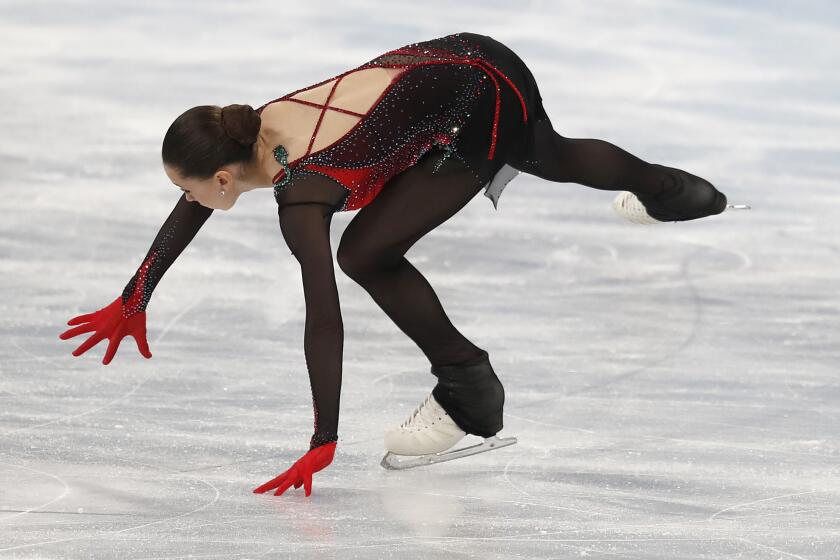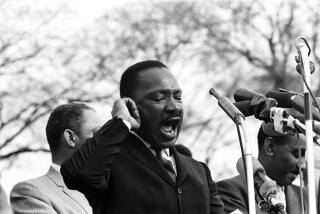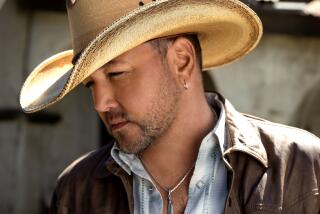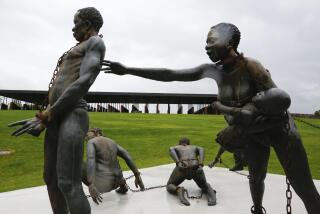How Gayle King put a national spotlight on the killing of Trayvon Martin
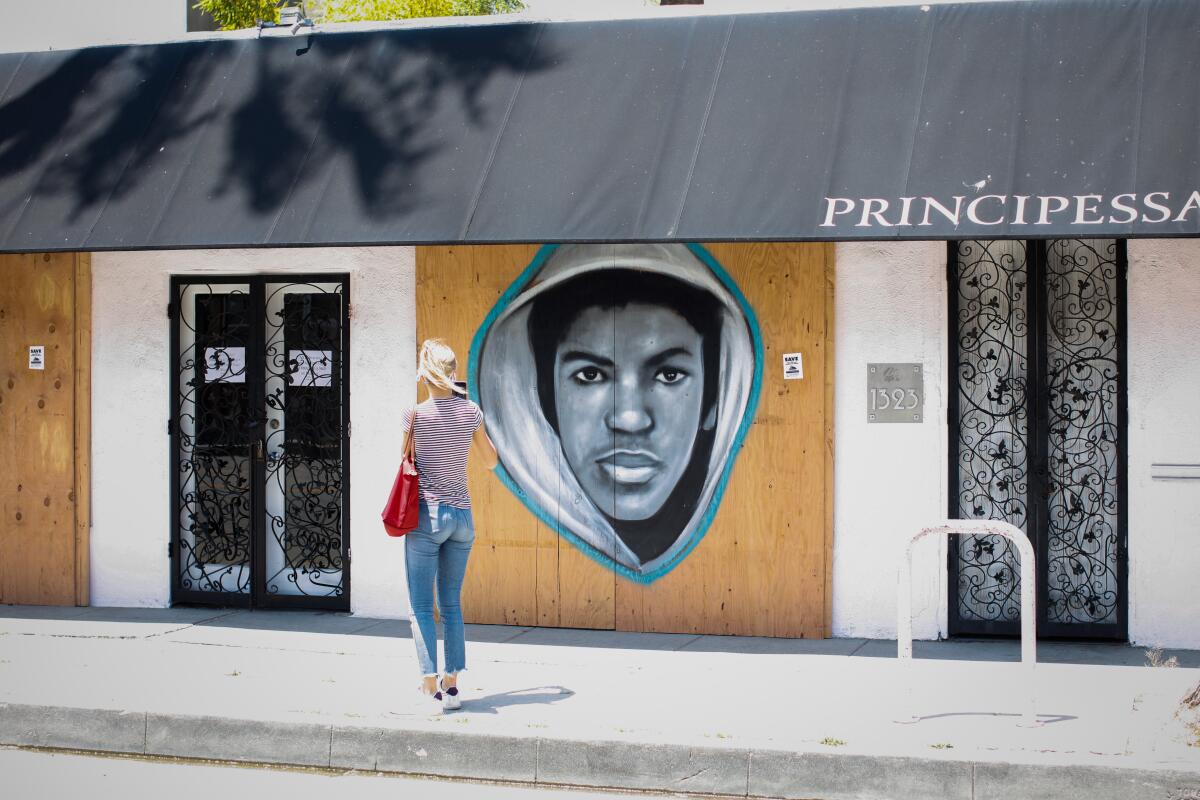
- Share via
“CBS Mornings” co-host Gayle King recalls the editorial story meeting at her network in February 2012 when she first brought up the name Trayvon Martin.
Days had passed since the unarmed 17-year-old Black teenager from Sanford, Fla. was shot and killed by George Zimmerman, a neighborhood watch coordinator. When King raised it, she heard producers say it was a local story. But she knew it was something more.
“I said, ‘I’m telling you this is not a local story,’” King recalled in an interview Friday. “It was unheard of to me that this was just a kid walking from the store with his Skittles and his Arizona iced tea, minding his own business on the phone talking to his girlfriend.”
King kept pushing and soon Mark Strassmann, the Atlanta-based correspondent for CBS News, did the first network TV interview with Martin’s father and his attorney Ben Crump, who has since become a prominent figure in cases involving the wrongful police killings of Black people.
Martin’s death went unpunished as Zimmerman was acquitted after claiming self-defense (Florida’s “stand your ground law” that allows citizens to use deadly force if they feel threatened or endangered). But the national coverage of the story that started on CBS helped energize the “Black Live Matter” movement and the national conversation about equal justice in the Black community.
The story resonated strongly through the sports world, with NBA players wearing Martin’s now-iconic hoodie and leading to former NFL quarterback Colin Kaepernick’s on-field protests that effectively ended his football career. In the White House, then-president Barack Obama said Martin “could have been me 35 years ago.”
King revisits the incident and its lasting impact on the country in the hourlong special “Trayvon Martin: 10 Years Later,” which is available on CBS News Streaming starting Saturday night, the anniversary of the teenager’s death. It will also have cable TV airings Saturday at 7 p.m. Pacific on the Smithsonian Channel and Monday at 5 p.m on BET.
“Trayvon Martin: 10 Years Later” is the network news division’s first streaming program presented under the “CBS Reports” banner, a name associated with its renowned documentary series hosted by Edward R. Murrow.
The program comes out of the division’s Race and Culture Unit, led by veteran executive producer Alvin Patrick. CBS News created the unit two months after the May 2020 police killing of George Floyd, which spurred social justice protests in cities across the country.
King discussed the program — and her recent decision to sign a new deal with CBS to continue morning duties along side Tony Dokoupil and Nate Burleson — during a break while filming a story in Los Angeles.
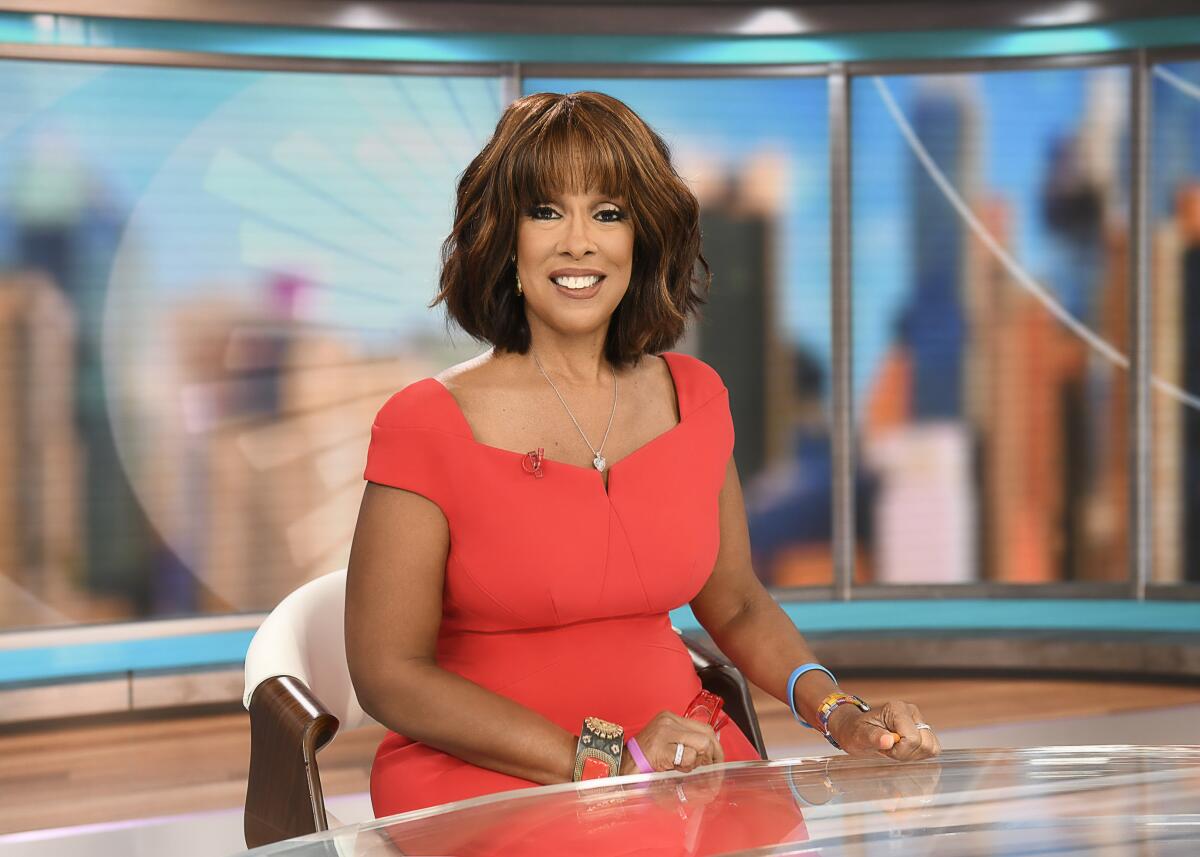
It sounds like you wouldn’t take no for an answer when you wanted to get Trayvon’s story on the network.
I’m very proud of that because I’m sitting there with a table full of people going over the story rundown who did not see it as a national story. But I really did see “something different has happened here” and I think because it’s so relatable to anybody that has a son, and certainly anybody that has a Black son, that your child could be in harm’s way just doing normal things. That was just unheard of to me and quite frankly very scary.
As the mother of a Black son, it had to be especially frightening for you.
It’s no secret that all Black families — I don’t care what your economic status is — always have the conversation with their young boys about what happens if you ever have an encounter with the police. Now George Zimmerman was not a police officer. He was a wannabe police officer. He called himself a neighborhood watch person. But he certainly thought he was empowered and emboldened to take the law into his own hands. From Trayvon’s point of view, he didn’t know who this guy was. He doesn’t know why this guy is following him.
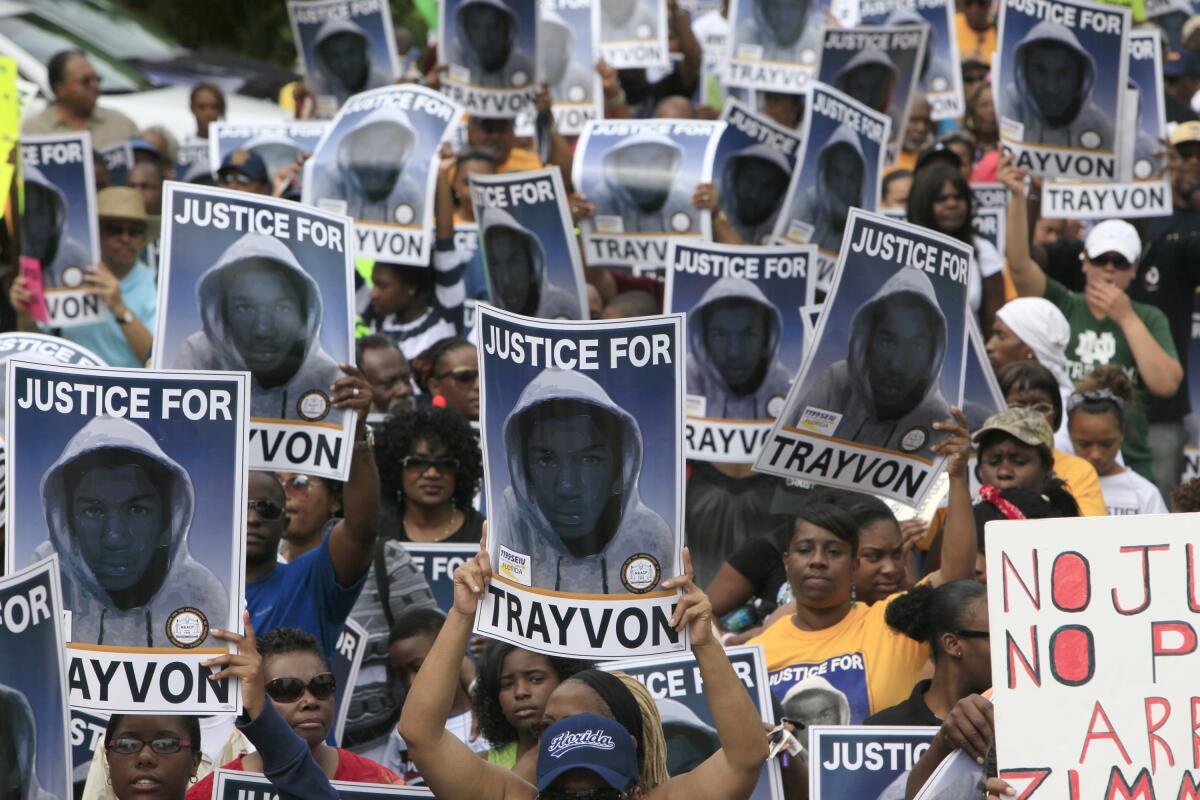
It took awhile for the story to seep into the public consciousness outside of the Black community, as opposed to George Floyd, where the reaction across the country was immediate.
It took George Floyd — watching the life seep out of him in front of your own eyes — to really wake people up in a different kind of way. You just saw the callousness and the inhumanity of that. People weren’t familiar with this kind of story.
Empty seats, COVID protocols and a politically fraught host country in China put a damper on the events, but the streaming audience for the Games continues to grow.
It’s because we had video and could see what happened.
Unfortunately, I think that’s true. And listen, if there wasn’t video in the Ahmaud Arbery case, those guys wouldn’t even have been arrested. If there wasn’t video in George Floyd case, they would have told a different story. The video was crucial. There was no video for Trayvon Martin. They had audio of the gunshots and the screams. People tried to say that that was George Zimmerman screaming for help. Trayvon’s mother Sybrina Fulton was very clear about who those screams were. She said “I know my son’s voice.”
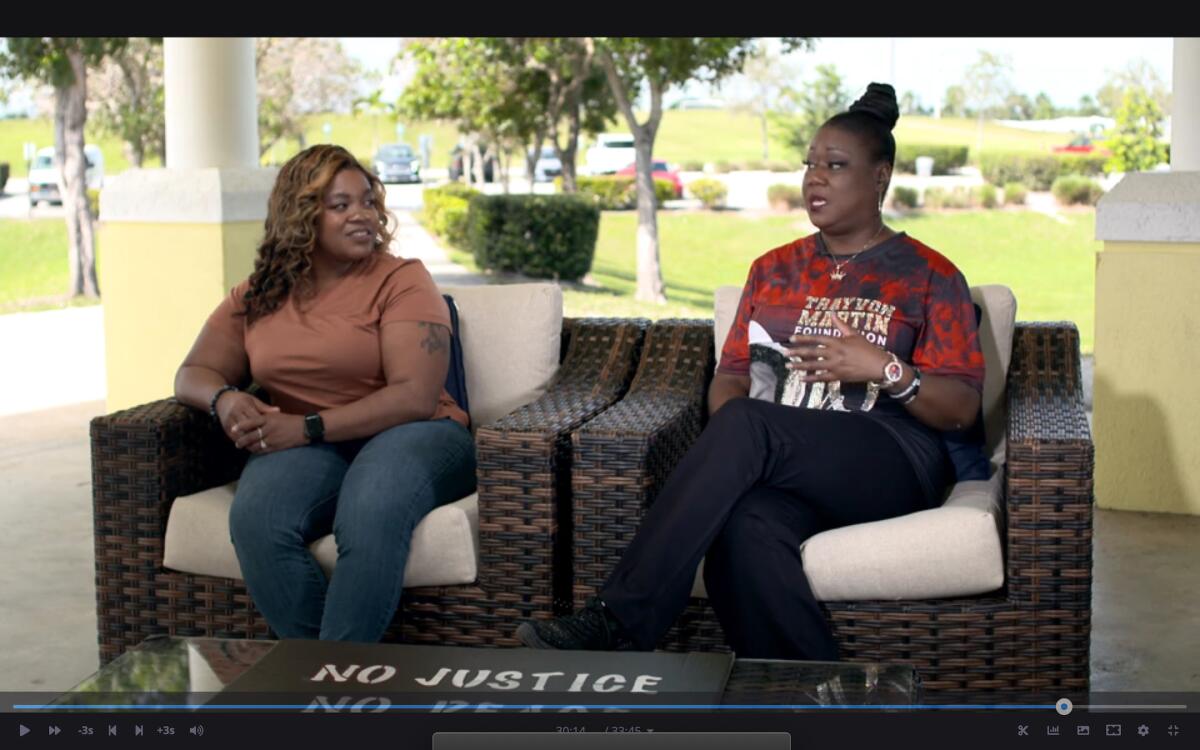
In the past this might have been just been a segment. Is one of the advantages of having a streaming channel that you’re able to devote an entire hour to this?
I say hooray for us, for giving it the space and attention it deserves. People needed to be reminded because we’ve made some progress because there have been some convictions, but we’ve got a long way to go.
Do you think the public’s attitude has evolved enough so that if the Trayvon Martin incident happened today George Zimmerman would have been convicted?
I’d like to think so.
You recently signed a new deal at CBS. There was a lot of chatter about you talking to CNN. How close were you to going there?
What I think is important is that I’m staying at CBS. I’m not going to engage in the chatter. I will just say I’m very happy that we reached an agreement. I’m very happy to stay where I’ve been for 10 years. I love the team that we have and I love what we’re doing.
How do you like being a grandmother?
I love it. If I didn’t think you’d be bored to tears I’d send 10 pictures right now.
Has your grandson, Luca, watched you on TV?
Oh yes. It’s all I can do not to lead the show with how he did with tummy time.
More to Read
Inside the business of entertainment
The Wide Shot brings you news, analysis and insights on everything from streaming wars to production — and what it all means for the future.
You may occasionally receive promotional content from the Los Angeles Times.
